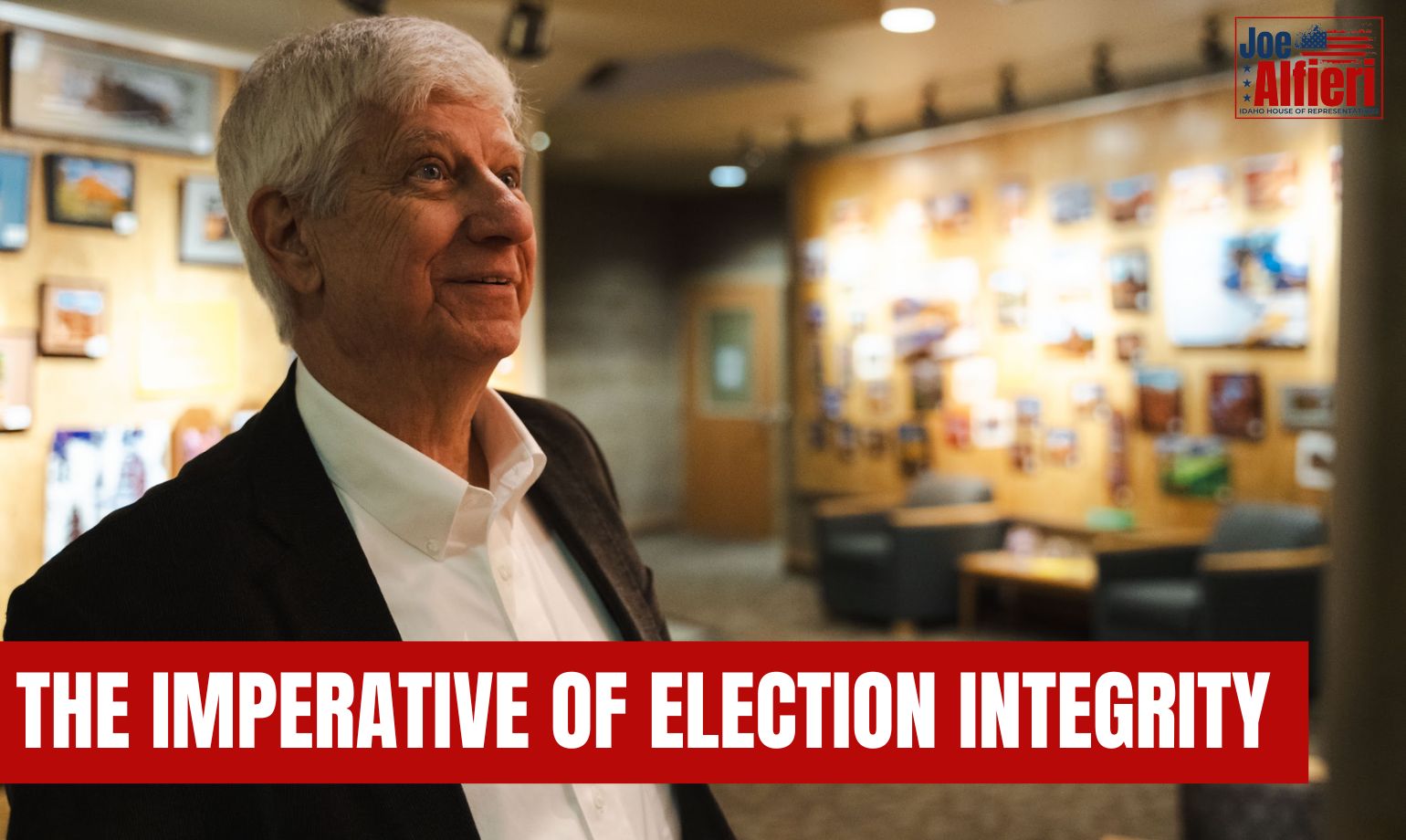“Free and fair elections” is a phrase that seems to be tossed around a lot these days. It is often invoked as the standard of “preserving democracy,” but all too often, politicians who invoke these phrases use them to justify whatever actions they want to take or claims they want to make, even when those actions or claims have little or nothing to do with ensuring that elections are either free or fair.
I do believe that “free and fair elections” are the backbone of a functioning republic (not “democracy”), but unlike some others, I am willing to go on record to state precisely what I think that means and what it requires.
Voter fraud is real, no matter what the media wants you to believe. Fraud can encompass everything from “helping” one’s aging parents to “fill out” their absentee ballots and sending them in, to collecting a slew of blank mail-in ballots, filling them out, and dumping them in a ballot box. And yes, that has happened. Are we supposed to believe that such a scheme has never been carried out despite the loose election laws that invite tampering?
In 2020, the integrity of our voting system in this country was especially under siege, as the pandemic was used as an excuse by several states across the nation to modify voting procedures.
Whatever you believe about what happened in 2020, the more important question is how can we ensure that our voting is secure now and in upcoming elections? We will never know what happened in 2020 because the various state systems were so riddled with irregularities that there is no way to get to the truth now. That is one of the reasons there are two intractable camps: those who believe fraud was rampant and those who think the election was bullet-proof. The fact that neither side can either prove or disprove their contentions is a clear signal that our system is in trouble. We need an inherently reliable and trustworthy system, or no one will have faith in our elections.
Laws to Protect and Foster Election Integrity
Let’s start by saying that protecting election integrity is not rocket science. There is a way to ensure elections are secure, and the requirements are fundamental. Here are some basic requirements that are relatively easy to implement and that can assure all voters that voting processes are trustworthy.
- Each person permitted to cast a vote must be legally eligible to vote. For Idaho, that means being alive (!), a U.S. citizen, an Idaho resident, at least 18 years of age, and subject to no disqualifying conditions. (In Idaho, that would be someone convicted of a felony who has not had their civil rights restored).
- Voters should be registered to vote in only one polling location in the state and country. If they move to another polling location, they must be removed from the voter rolls in their prior location and re-register in their new one.
- Voters must present valid identification at the polling location to receive a ballot.
- Voting should be done by using paper ballots.
- Voters should vote in-person on one day designated for the purpose. For those unable to meet this requirement, absentee ballots should be available with ample lead time for voters to receive them and mail them in by a fixed deadline. All absentee ballots must be received by election day.
- Vote counts should be monitored and transparent.
- Voting tallies should be completed on election day and reported to the appropriate local and state officials.
- All absentee ballots should be limited to those whose need for absentee voting is legitimate: firefighters, police, and hospital workers on the job, for example, or people in remote locations or who have physical impairments that make in-person voting unreasonably burdensome.
- Absentee ballots must be accompanied by instructions, and absentee voters must follow all instructions and strict but simple ballot requirements (such as a verified signature on their ballot envelope) for their ballots to be counted.
- Conduct post-election audits.
Thankfully, many of these protections are in place in Idaho to protect election integrity. However, we must remain vigilant and take affirmative steps to ensure that every measure to promote valid voting processes is carried out and maintained.
Do not let “experts” tell you that voting is complicated or elections need sophisticated systems and special accommodations. Modern technology does not require us to change basic requirements. If anything, modern technology means we can efficiently conduct simple electoral responsibilities by identifying and eliminating duplicate registrations, purging deceased or ineligible voters, and so on. Maintaining accurate data on residency, citizenship, and other factors is easier than ever, and we should use technology to keep elections honest, not to make cheating easier.
Voting is a cherished right and also a privilege. People should be required to make a minimal effort to go to a polling place and cast their vote on a designated election day that is announced months in advance. Voters should be expected to make this effort if their vote is important to them; the state has no duty to coddle and coax them into voting.
As a candidate for re-election to Idaho’s House of Representatives, I am committed to promoting an election system in which every vote is protected with the utmost integrity, where voters are encouraged to exercise their civic responsibilities.
Protecting election integrity should not be a partisan issue; it is a shared responsibility to protect the foundational principles of our republic. But it can be a partisan issue if one political party claims that it wants to “protect democracy” by advocating for election measures that invite voter fraud. If you agree, vote for Joe Alfieri for District 4A Representative in 2024.
